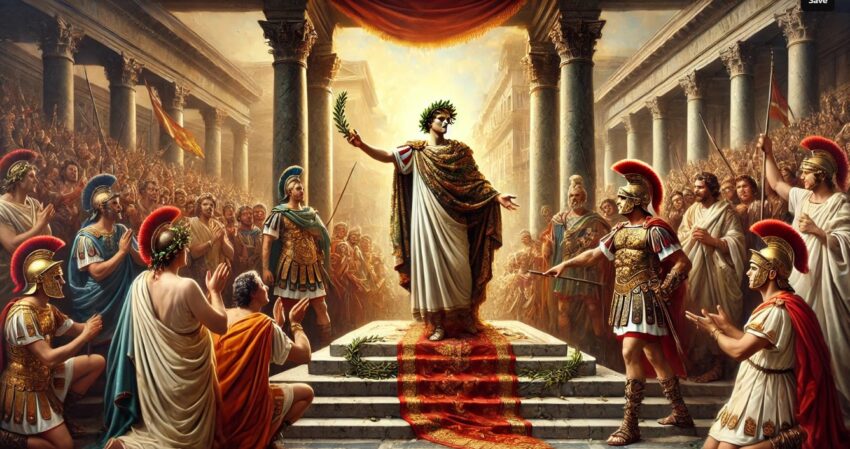Republic in Danger: Concerns about the Republic’s survival under Caesar
Historians of both ancient and modern times have frequently highlighted the growing concern among Rome’s political elite regarding the survival of the Republic under Julius Caesar’s rule. While Caesar’s extraordinary military achievements and charismatic leadership earned him widespread admiration, they also sowed deep seeds of anxiety within the senatorial class. Ancient historians such as Suetonius and Plutarch recount the pervasive fear that Caesar’s rise marked the end of the Roman Republic as it had been known for centuries.
The Senate, a body that had long been the cornerstone of Roman governance, found itself increasingly sidelined as Caesar accumulated titles and powers that effectively placed him above the law. With each new title—whether as consul, dictator, or pontifex maximus—the perception grew that Caesar was positioning himself as more than just a leader; he was becoming the embodiment of Roman authority itself. This centralization of power was perceived not just as a threat to the Republic’s political structures but also to its very identity.
Historians like Tacitus argue that Caesar’s accumulation of power was a direct challenge to the traditions that had defined Roman governance. His willingness to override the Senate, to legislate unilaterally, and to implement reforms that bypassed traditional processes were seen as signs that the Republic was in mortal danger. Even those who had once supported Caesar began to question whether his rule was leading Rome toward monarchy—a system the Republic had fiercely rejected since the expulsion of the Tarquin kings centuries earlier.
As Caesar prepared for further military campaigns and continued to consolidate his control, these fears were exacerbated by his actions and the reactions they provoked. His planned campaign against Parthia, while strategically sound, was viewed by some as a way to distract the Roman populace and the Senate from his domestic power grab. Additionally, his acceptance of honors that were typically reserved for deities, including the controversial proposal to have a statue of himself placed among the gods, fueled speculation that Caesar sought to elevate himself to a divine status, further undermining the Republic’s republican ideals.
The atmosphere in Rome grew tense as the reality set in: the Republic, once the proud center of Roman identity, was now at risk of being overshadowed by a single man’s ambition. The belief that the Republic could not survive under Caesar’s rule became a rallying cry for those who feared the end of their political freedoms and the emergence of a new form of governance, one that was antithetical to the principles that had guided Rome for centuries.
 |
 |
 |


